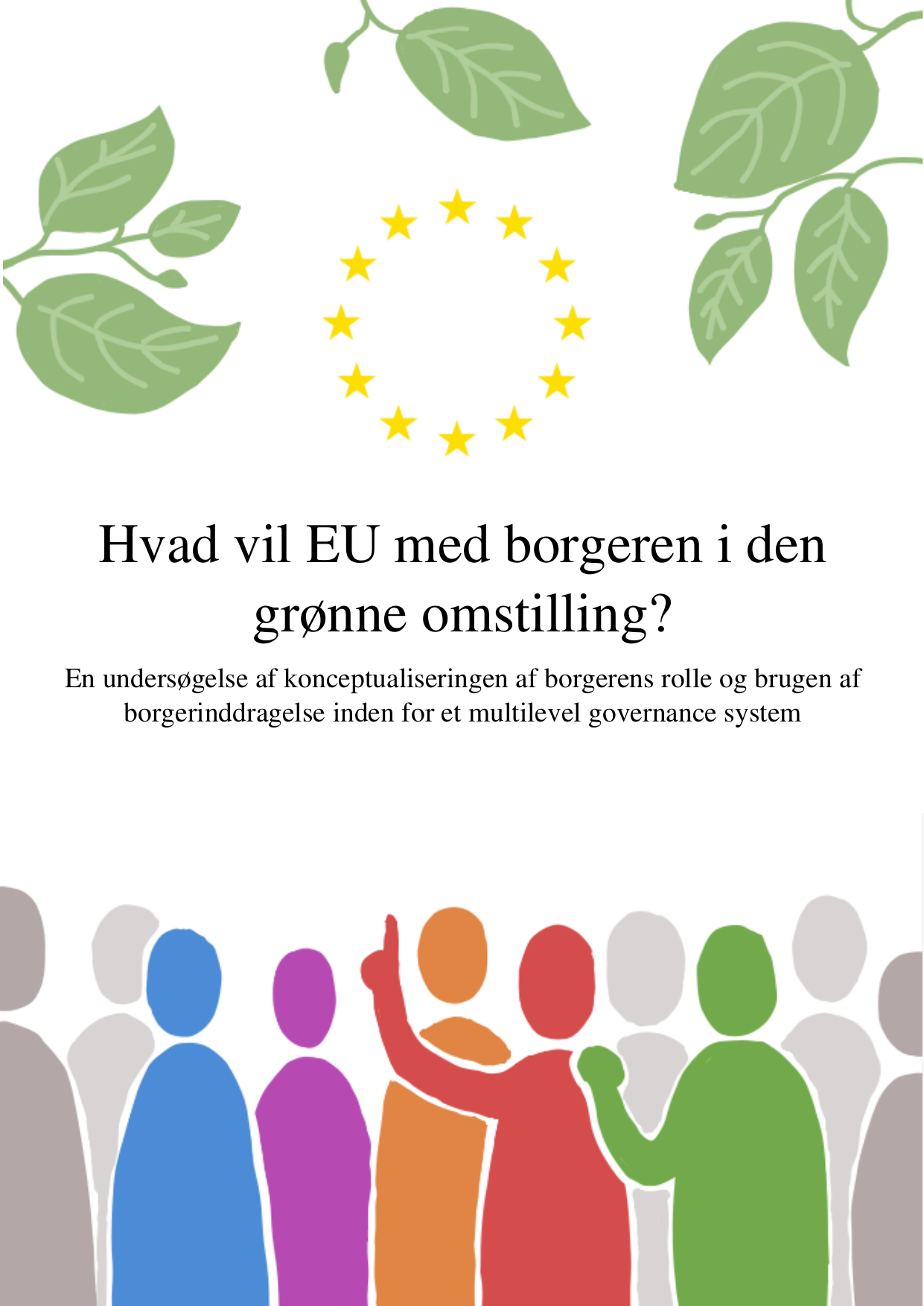
Hvad vil EU med borgeren i den grønne omstilling? En undersøgelse af konceptualiseringen af borgerens rolle og brugen af borgerinddragelse inden for et multilevel governance system
Oversat titel
What role do citzens play in the European green transition? An examination of the conceptualisation of citizen roles and the use of citizen engagement within a multilevel governance system
Forfattere
Semester
4. semester
Uddannelse
Udgivelsesår
2024
Afleveret
2024-05-29
Antal sider
96
Abstract
This master’s thesis examines the conceptualisation of citizen engagement in the context of the European Union’s green transition policies. The main focus is to understand how the EU conceptualises the role of citizens and what implications this has for the use of citizen engagement in the local implementation of green policies. The study is driven by the increasing importance of public participation in the EU’s green agenda, particularly in the context of the European Green Deal. The thesis adopts a multi-level governance perspective to examine the interaction between supranational and local levels in the policy cycle. By focusing on EU funding programmes, specifically those related to climate, energy, and sustainability, we analyse how the EU shapes local governance practices in terms of citizen engagement. From the literature on citizen engagement, we identify three primary conceptualisations of citizens: as co-creators, consumers, and democratic citizens [‘medborger’ in Danish]. Each role entails different levels of engagement and influence in the policy process, reflecting different objectives of participation and inclusion, from increasing democratic legitimacy to ensuring effective policy outcomes. The thesis uses qualitative analysis of documents related to the programmes as well as interviews with informants from the EU and local level. The analyses shows that the three categories exist at both levels, with both similarities and differences in how the role of the citizen is conceptualised. The findings show that at the EU level, citizens are often seen through the lens of efficiency and impact, as co-creators who bring valuable knowledge and legitimacy to the policy development phase. In this view, citizen involvement is a tool that can secure not only acceptance but also public ‘buy in’ to green projects and policies. At the local level, municipalities balance democratic participation with practical implementation needs. Taken together, these perspectives lend themselves to a conceptualisation of the citizen as a co-creator. Specifically, informants at the local level see bottom-up projects and democratic and public values as the goal of engagement. In these citizen-led projects, the municipalities facilitate and educate citizens, conceptualising them in part as consumers whose choices and behaviour influence the green transition. Despite differences in the prioritisation of policy effectiveness and the democratic value of citizen participation between the two levels, active citizen participation is generally seen as crucial, particularly in the implementation phase, to ensure the successful deployment of green initiatives. The analyses suggest that this is linked to a latent conceptualisation of the citizens as potential barriers to an accelerated transition. Based on the findings, the thesis discusses the issue of ‘tokenism’ versus the potential burdens of ‘citizen power’ on citizens themselves. The thesis then concludes by highlighting both the tensions and potentials between the supranational and local levels in fostering citizen participation.
Emneord
